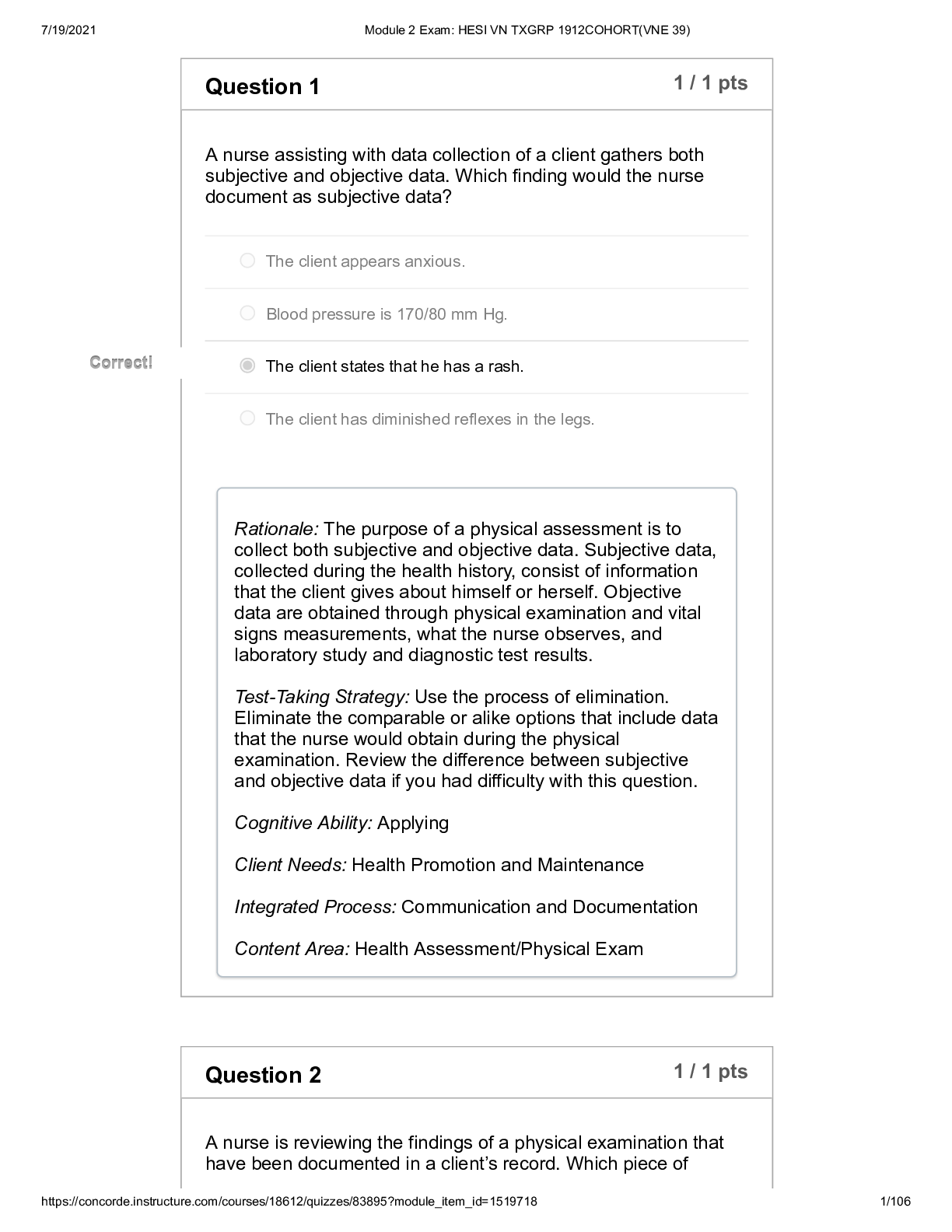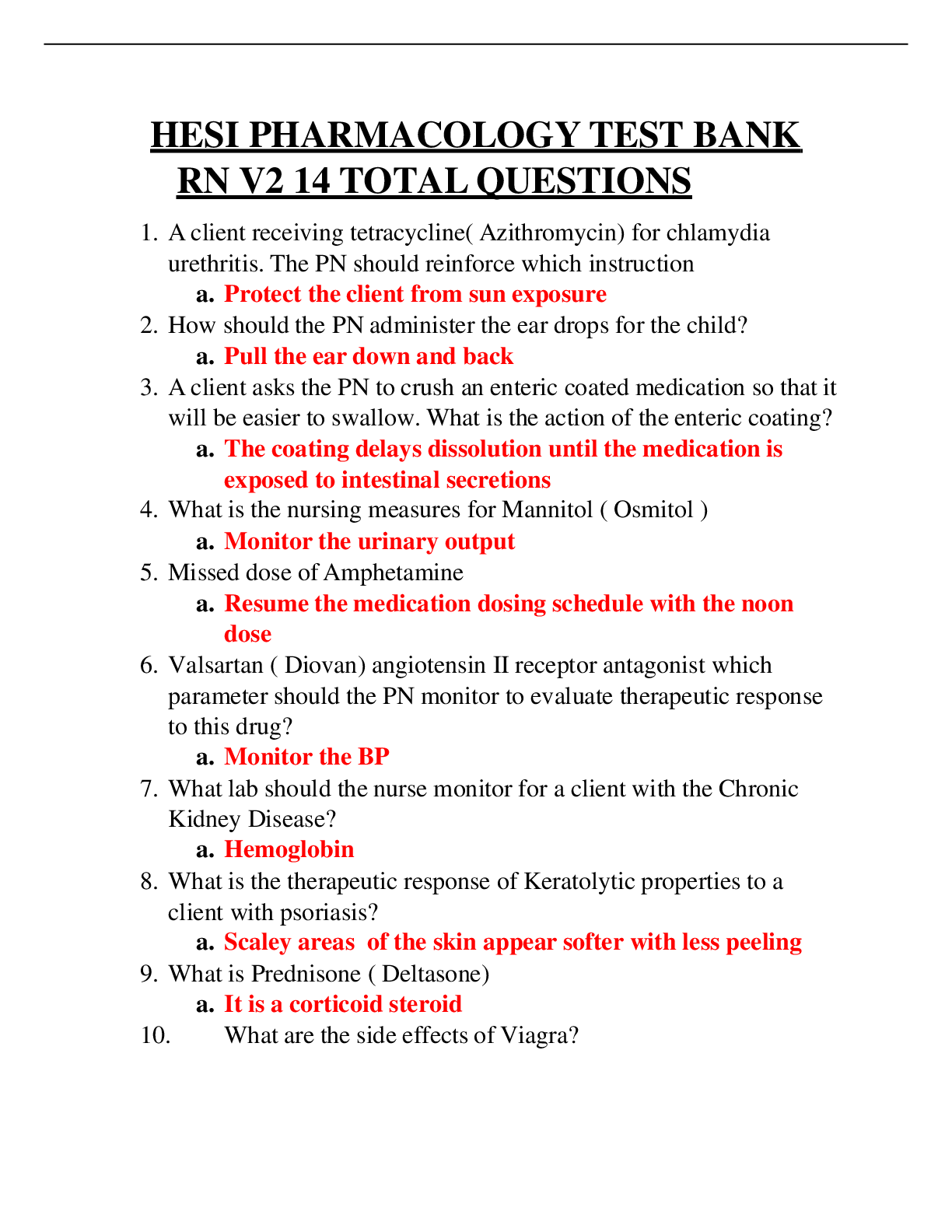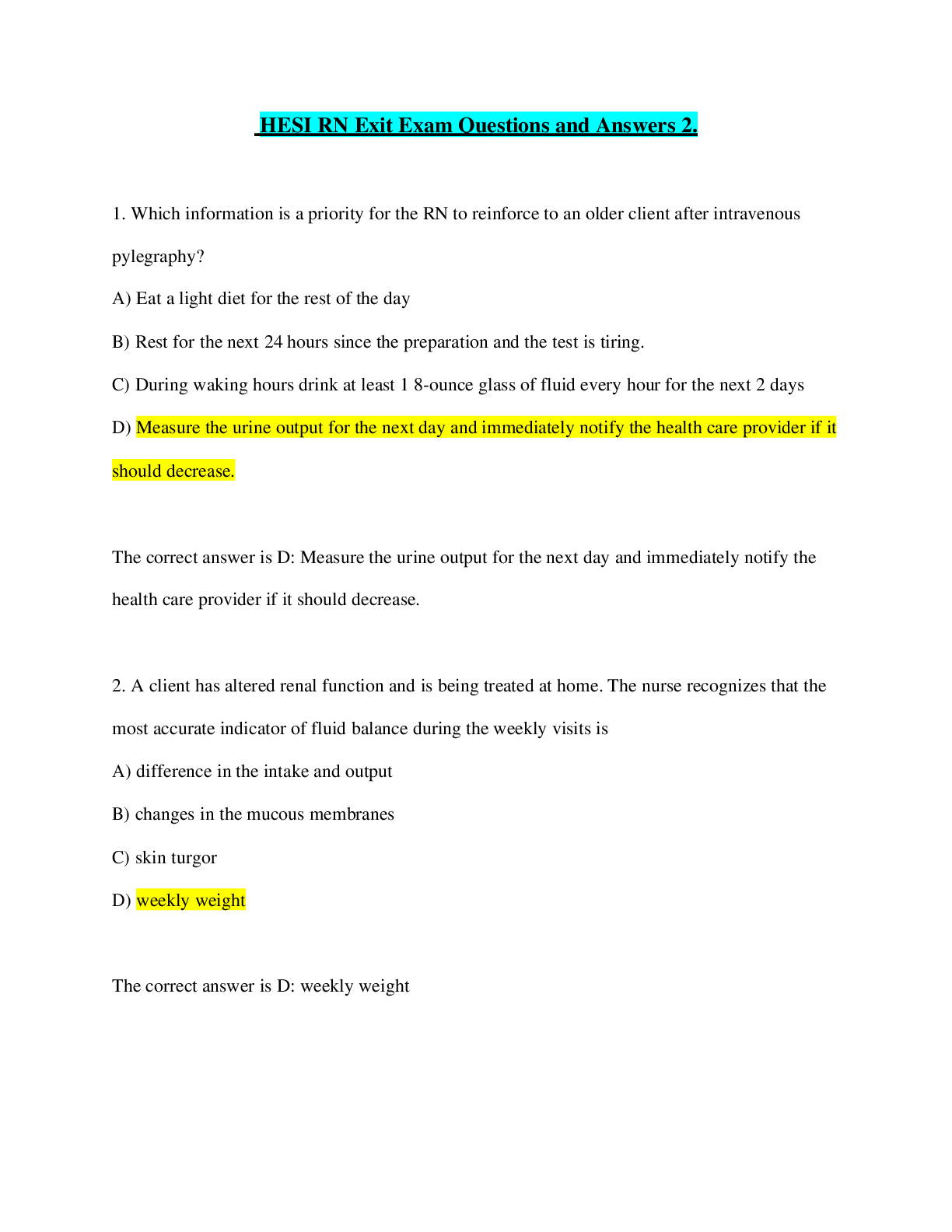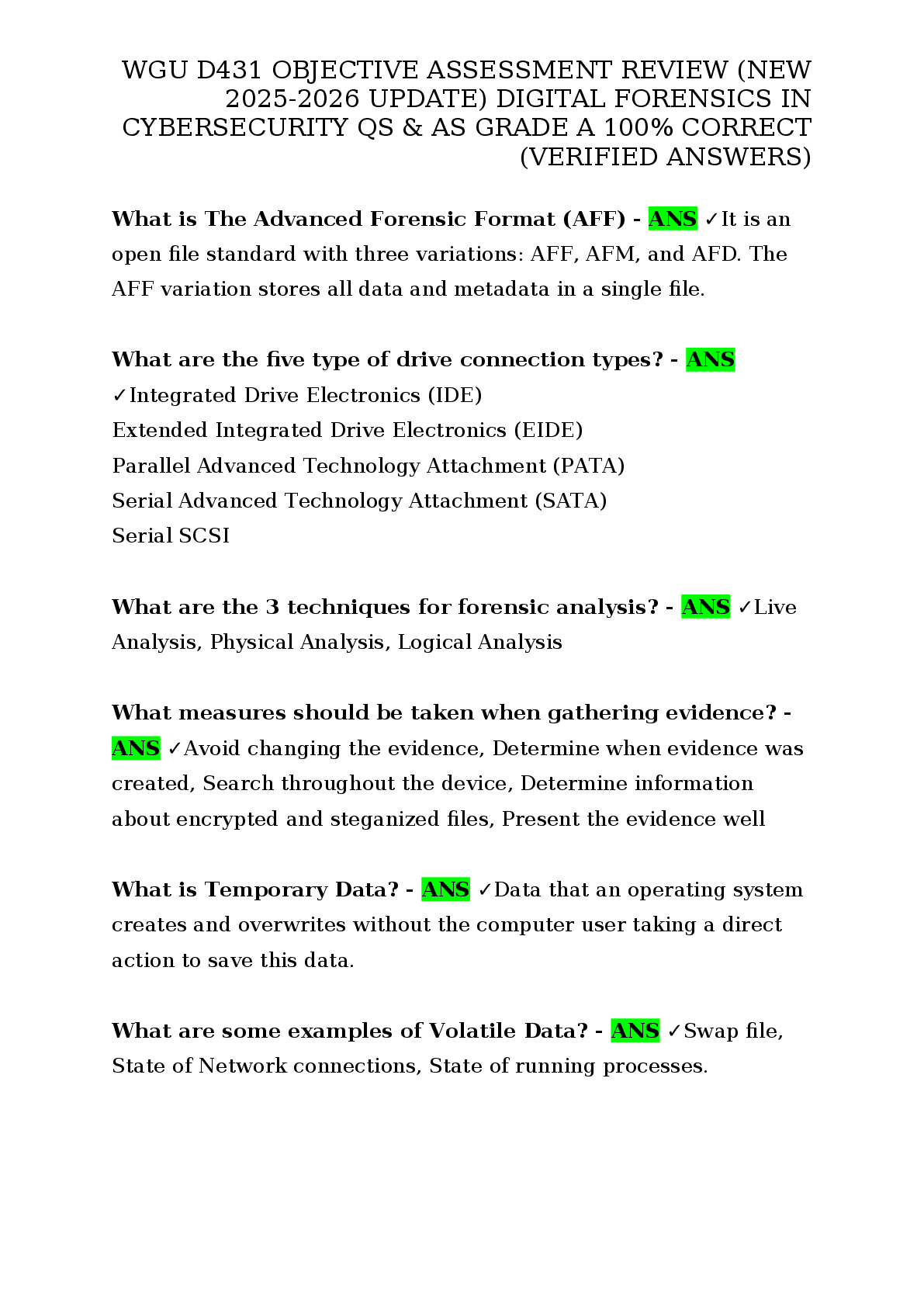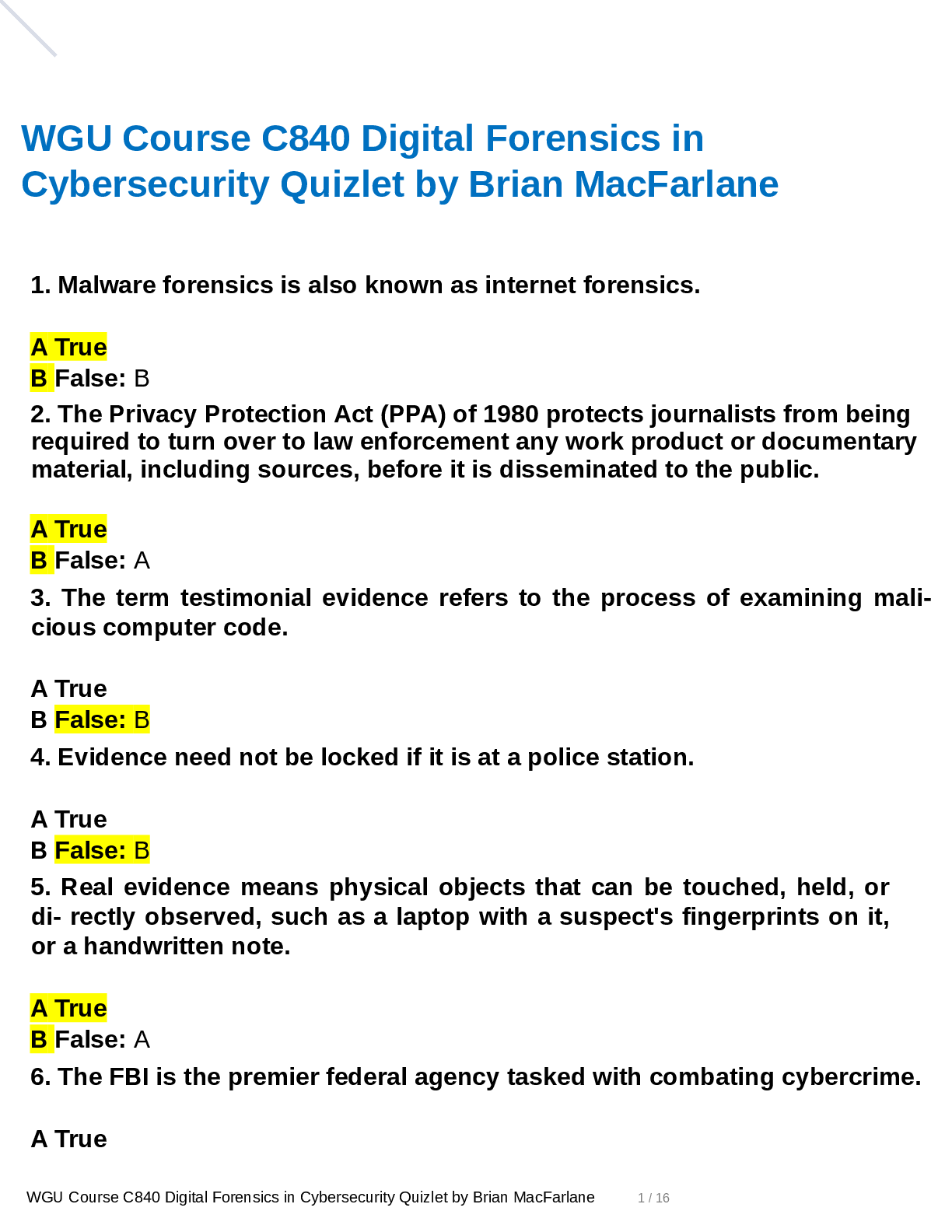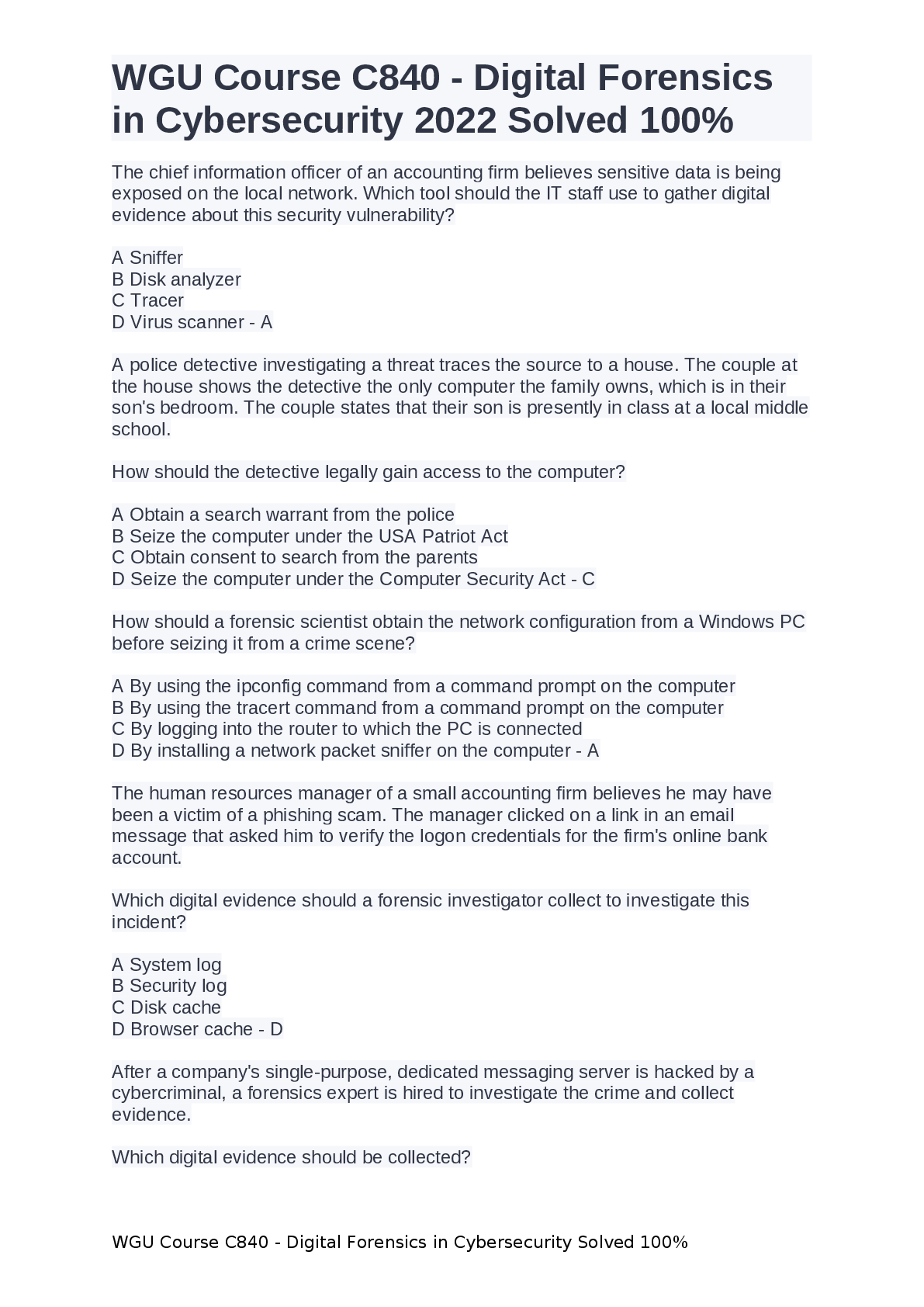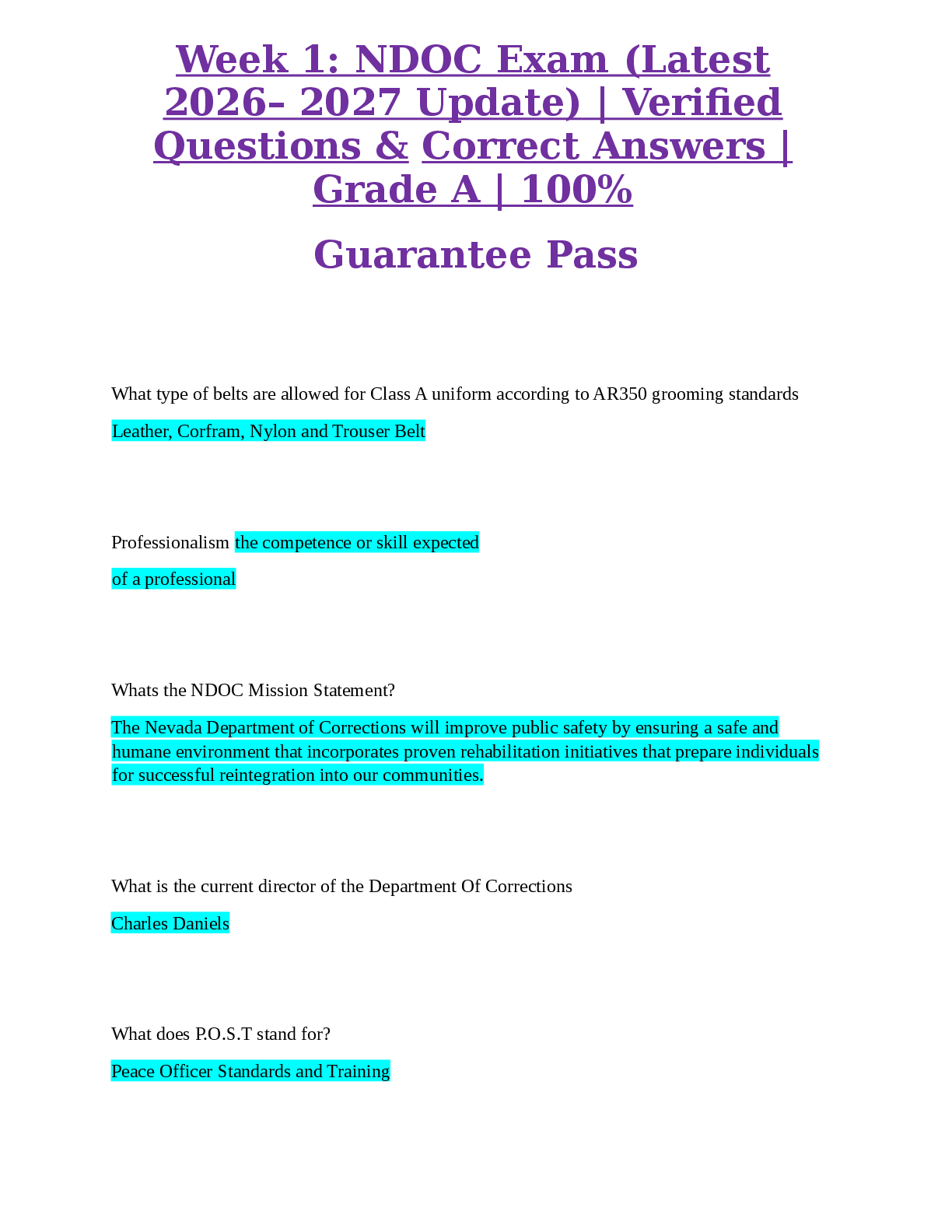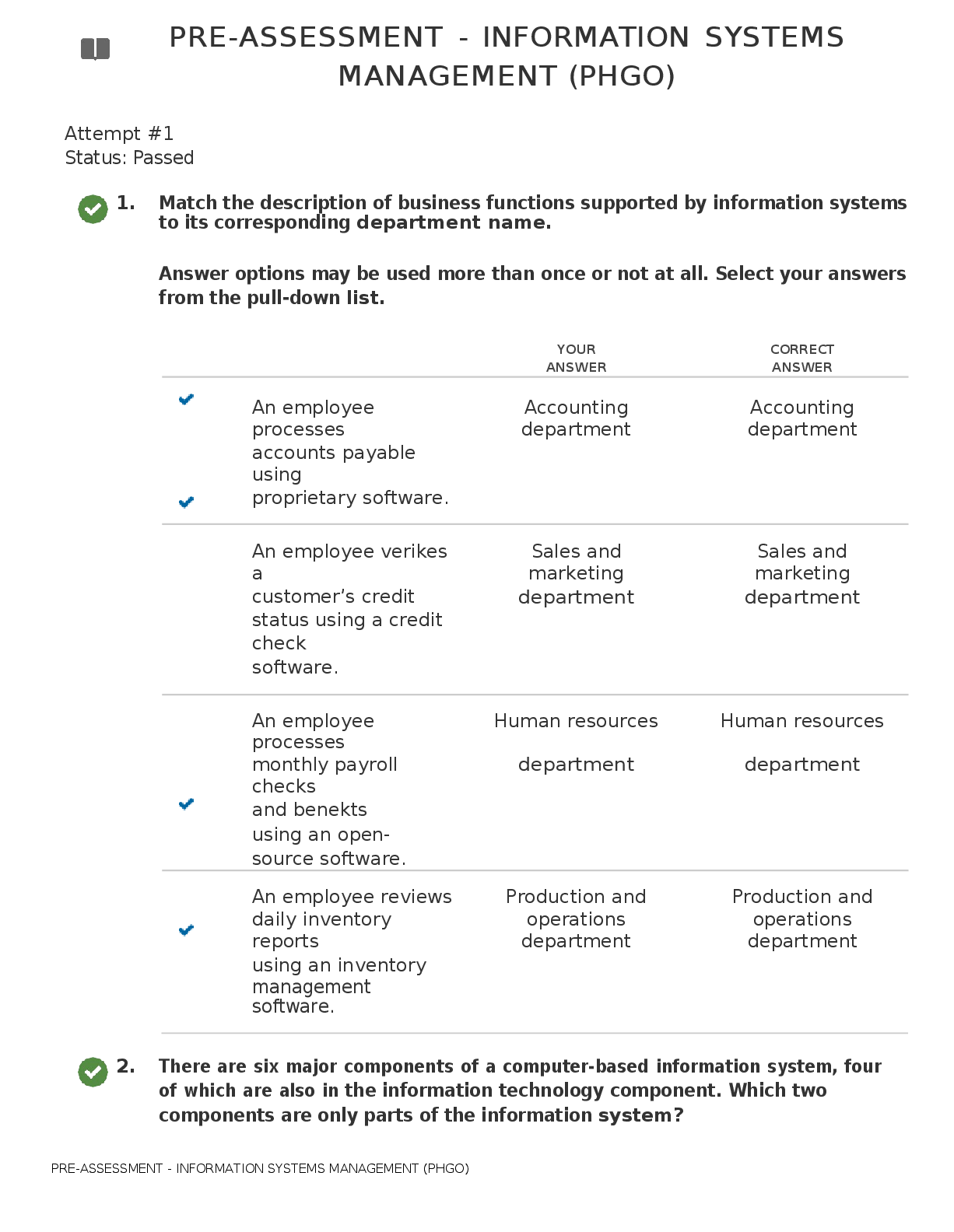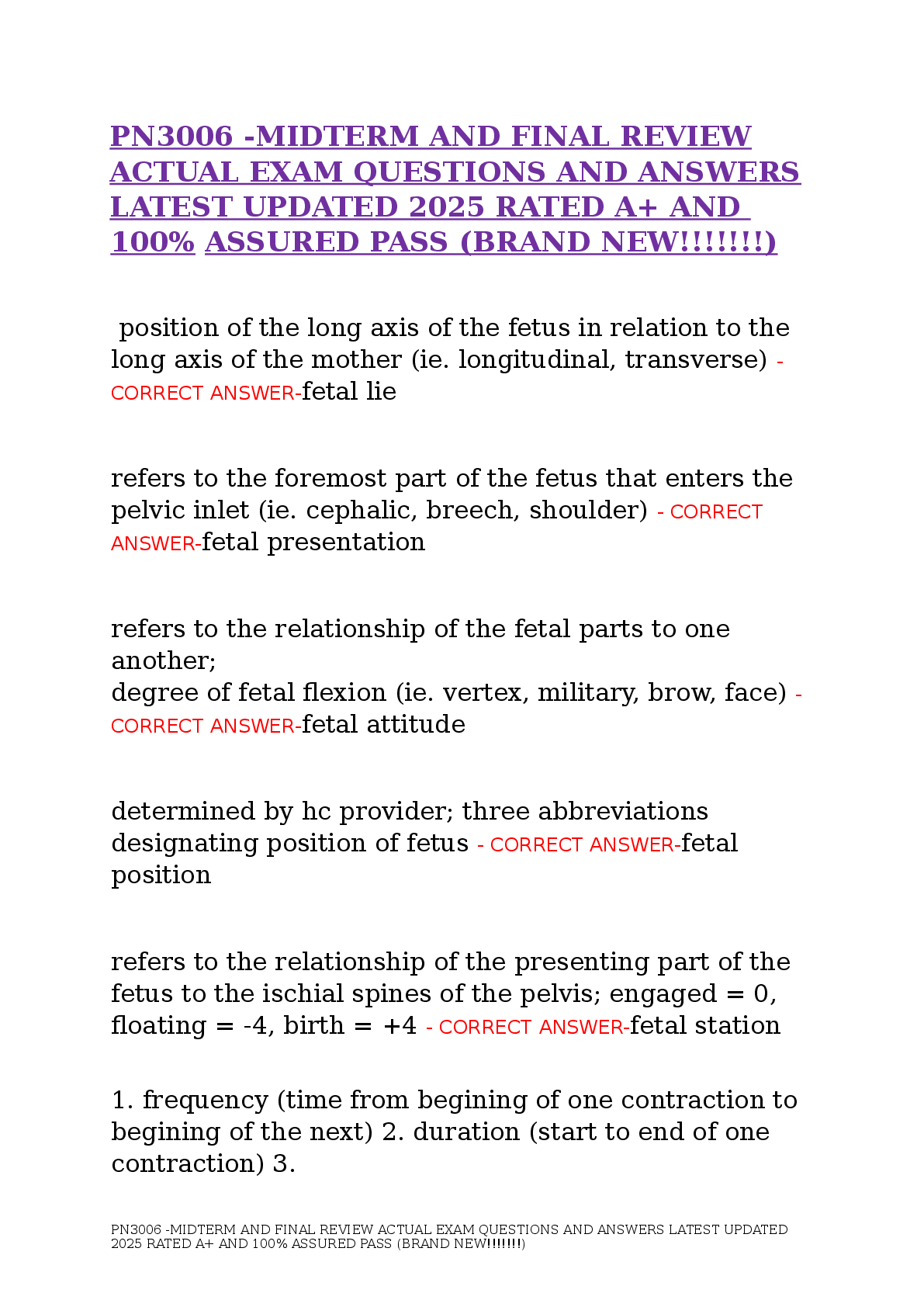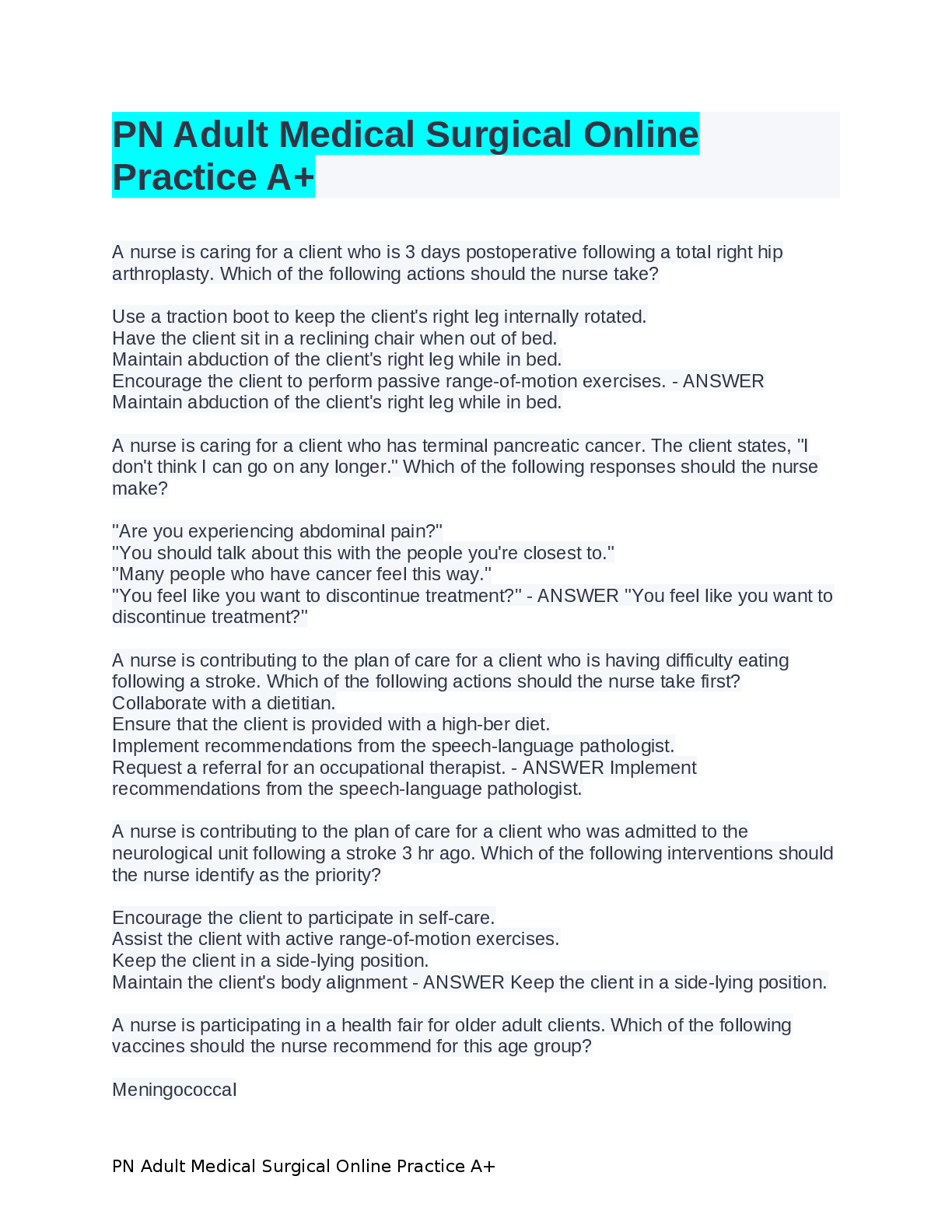Health Care > EXAM > NR 322 Exam Three Study Guide-.GRADED A LATEST SOLUTION (All)
NR 322 Exam Three Study Guide-.GRADED A LATEST SOLUTION
Document Content and Description Below
NR 322 Exam Three Study Guide-.GRADED A LATEST SOLUTION NR 322 ExaNR 322 Exam Three Study Guide-.GRADED A LATEST SOLUTIONNR 322 Exam Three Study Guide-.GRADED A LATEST SOLUTION NR 322 – Exam ... Three Study Guide 1. Review Hirschsprung Disease. What is it? Complications? Treatments? Absence of parasympathetic ganglionic cells (help sphincters relax) in a segment of the colon, usually at the distal end of the large intestine. The lack of nerve innervation causes an absence of, or alteration in, peristalsis in the affected part of the colon (have trouble relaxing to have BM). MAJOR hallmark sign is absence of that first stool as newborn, called meconium. Congenital disorder Disease progression causes most complications. Complications include severe diarrhea, bowel perforation, sepsis, incontinence, stricture formation, enterocolitis, and hypovolemic shock. Treatment includes surgery to remove the part of the colon without the functioning nerves. 2. Review Crohn’s disease vs. ulcerative colitis. Similarities vs. differences? Both inflammatory bowel diseases. 3. Management of trauma in children – goals of care, signs of renal trauma, cerebral trauma,etc. ABCs!!!! 4. What is pyloric stenosis? How do we care for these kids, what complications are we trying to prevent? Pyloric stenosis is hyperplasia (increased mass) and hypertrophy (increased size) of the circular muscle at the pylorus, the lower opening o the stomach leading into the duodenum. The increased mass and size of the muscle narrows the canal, preventing the stomach from emptying normally. In some cases pyloric obstruction can occur because of the stenosis which leads to vomiting and gastritis from prolonged filling of the stomach. It is most commonly seen in boys between ages 1 and 6 months. Other complications are malnutrition (from lots of vomiting), dehydration (can’t keep anything down), infection, and metabolic alkalosis. 5. Review Intussusception – what is it, symptoms, treatment? Intussusception is a telescoping of the bowel segments into itself. S/S: colicky pain characterized by screaming, drawing knees to chest, sweating, and grunting. Vomit containing bile or fecal matter can occur, which can lead to S/S of dehydration, fluid and electrolyte imbalances, and metabolic alkalosis. Red, currant jelly like stool containing mucus and blood is also seen. Inspection and palpation of abd may reveal a distended and tender section. Other signs are fever, increased pulse, shallow resp, and decreased BP. Treatment includes NG tube to decompress the intestine and minimize vomiting. Therapy may include spontaneous reduction of the bowel, hydrostatic reduction, or surgery. 6. Review the different types of Hepatitis? How are they spread? BOWELS ARE THE VOWELS. B AND D GO TOGETHER!!!! Hepatitis A: This type is caused by consuming infected food or by drinking infected water. Hepatitis A does not result in any chronic disease. Hepatitis B: This type is basically a sexually transmitted disease (STD). Hepatitis B virus causes this type that can spread by contact with infected semen, blood and some other fluids. Hepatitis C: This type is spread from a direct contact with an infected person. Hepatitis C Virus causes this type. It has been seen that about 20% of hepatitis C people also suffer from cirrhosis - Hepatitis D: People who are already suffering from hepatitis B can also get infected with hepatitis D. Hepatitis D virus causes this type. Any contact with perforation of the skin, infected blood and unprotected sex leads to infection. The swelling of the liver is caused by hepatitis D. [Show More]
Last updated: 3 years ago
Preview 1 out of 17 pages

Buy this document to get the full access instantly
Instant Download Access after purchase
Buy NowInstant download
We Accept:

Reviews( 0 )
$10.00
Can't find what you want? Try our AI powered Search
Document information
Connected school, study & course
About the document
Uploaded On
Apr 08, 2022
Number of pages
17
Written in
All
Additional information
This document has been written for:
Uploaded
Apr 08, 2022
Downloads
0
Views
99

